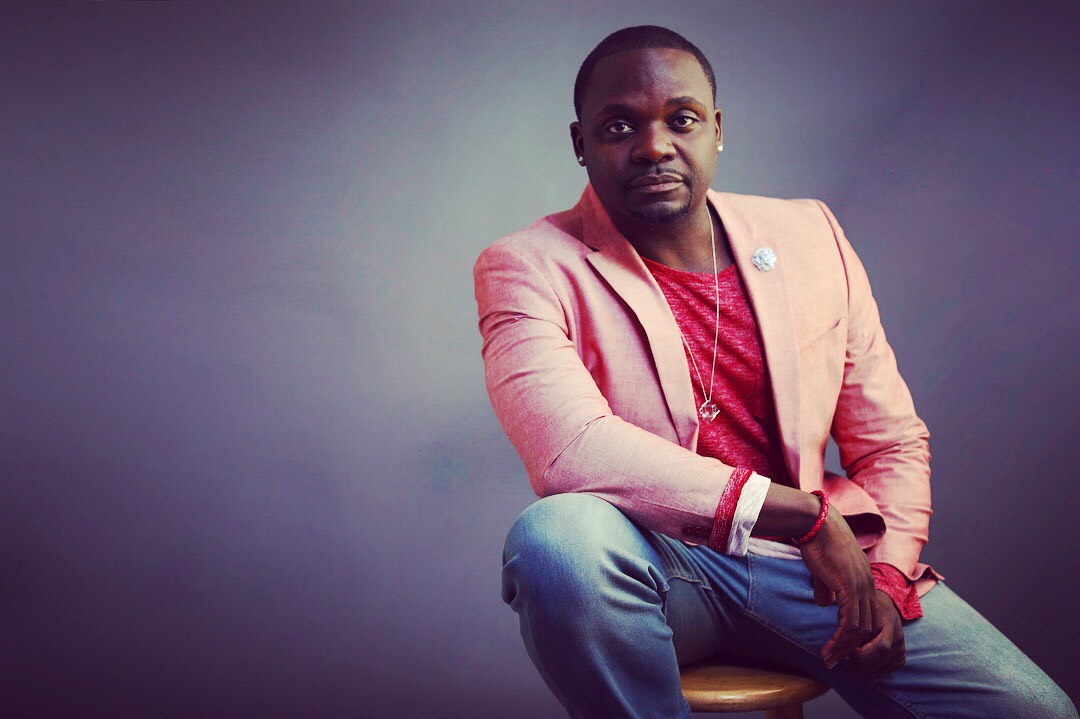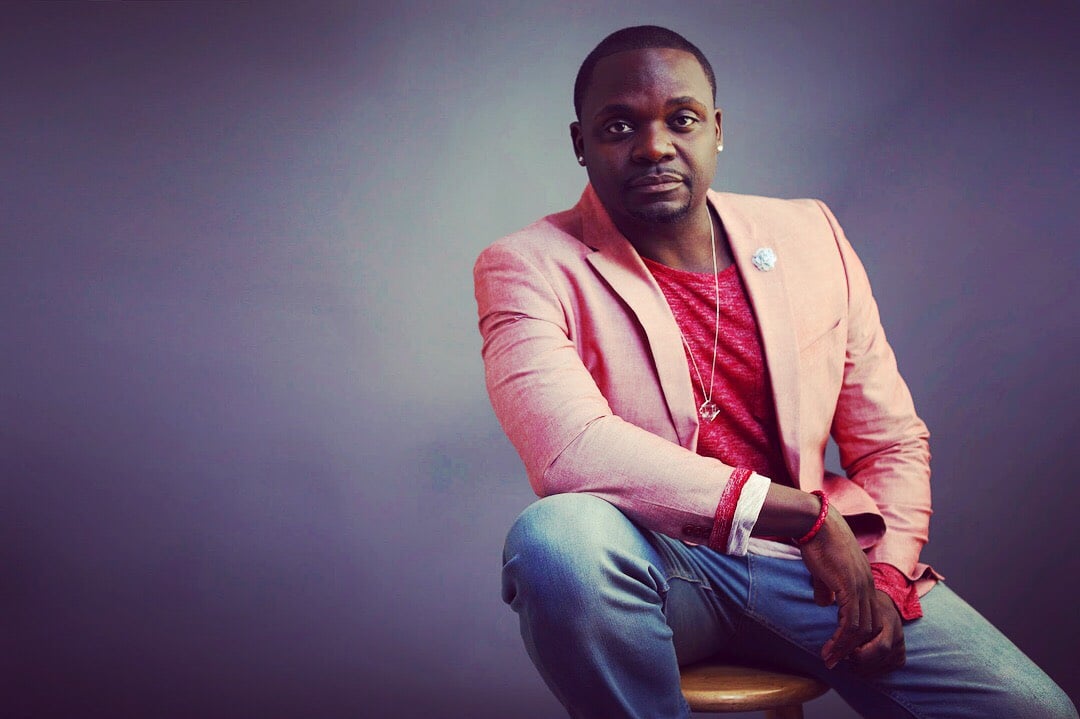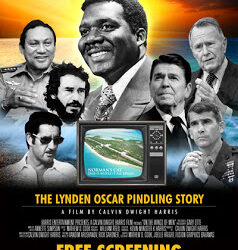
An interview with Travolta Cooper on his plans for screenings and finding his “true north”.
By Natalie Willis
The NAGB free film series is back for fall! From the spooky to winter-heartwarmers, we have got you covered. This week, we chat with Travolta Cooper – yes, that really is his name! – who will be curating this new season of screenings. The premiere opens with the terrifying classic, Rosemary’s Baby (1968) this Thursday October 18th at 7:00pm in Fiona’s Theatre at the NAGB. First, here’s more on the mind selecting these great bits of cinema for us.

Natalie Willis: Tell me a little about your background, with film, with life, all of it.
Travolta Cooper: I’ve always wanted to do this. I grew up in Bimini.
NW: Ah! You’re a family islander too!
TC: I was born in Freeport actually. The family was split between Abaco and Bimini, with Freeport literally in the middle. I was a little kid acting in church and school skits, and that evolved into writing, which evolved into wanting to make movies. It’s never not been this, it’s always been my path. My path was always going to be film and cinema, always. I mean, look at my name? Travolta.
NW: Funny you should say that, I just mentioned to Matthew, our gallery assistant “Okay guys, I’m going to go interview Travolta” and he got wide eyed and just uttered “JOHN!?”
TC: I know! It’s really something!
NW: This was practically pre-ordained! And for younger film-buffs coming up, tell me a bit about your steps in becoming a film professional – for want of a better word, because you do quite a range of things in film don’t you?
TC: That’s correct. I went to film school in Miami, first at a liberal arts college and then University of Miami. I started working in reality TV when that boom was happening on South Beach specifically, that lead to getting a job in LA, and it got back to me that things were happening at home with Kareem Mortimer and Maria Govan – that was around 2008. The Bahamas International Film Festival was starting to grow then too, and I decided I wanted to come home and be a part of that. I made some documentaries that did very well, and I start pre-production on my first narrative feature-length film next year. Whether it’s promoting film, as I do on my locally produced show “The Cinemas”, or whether I’m making it, cinema is just in my blood. It’s my name. It’s my everything. It’s always been my true north.

Travolta Cooper headshot. Image courtesy of Sekou Luke.
NW: That’s actually very lucky, because I think if you don’t know what you want to do it’s usually people have to choose between two subject areas at the very least.
TC: What I should say is that for a time there was a small struggle because I sang growing up as well.
NW: Aha! But, still, it is the creative arts.
TC: That’s what I had to learn. How to make all the arts become one art, and cinema allows you that outlet, because it’s an amalgamation of all the arts, it’s a collaboration of all the arts: moving image and visual culture, music, writing and literature, performance. In my digital series “Wally”, which I will be releasing soon, I’m writing, directing, producing, singing, acting…
NW: So you’re basically a one-man show then? Quite the renaissance-man!
TC: Old Hollywood was totally about that. You had to dance, act, sing, all of the above.
NW: So, essentially, everybody had to be Donald Glover?
TC: I’m so glad you mentioned that, I met him at Cannes Film Festival a few months ago! Roger Ebert said that music and cinema are really one and the same. He was my indirect teacher in a way when I was at film school, I would read all his reviews. Someone asked him once, “how far can cinema go?” and his response was “how far can music go?” In other words, it’s constantly evolving and taking shape and redefining itself and once you understand what it is… those who know the rules can break the rules essentially.
NW: What a beautiful way to put it. That’s creativity by nature really.
TC: It really is.
NW: So, with all this beauty in mind, what’s your focus for this film series? Is there an underlying thread to everything in particular?
TC: I’m really seriously passionate about the university. I love that we finally have a university, for one, and hopefully that can now evolve into a film studies program. I understand there’s now a minor for film studies, but they’re going to be working on turning it into a modality to major in.
NW: It just makes sense. There’s no film school here, and yet there’s incredible people doing work here and throughout the region especially in Trinidad and Jamaica. Whether its film proper, or animation –
TC: Trinidad and Jamaica are killing it! And The Bahamas!
NW: Yes we are!
TC: I’ve already been in contact with several of the professors at University of The Bahamas (UB) about getting their students out there as much as possible, in addition to making sure it’s an extension of everything that’s happening here at the NAGB. I want to marry the two – I’d love for it to be an extension of UB and of the NAGB.
NW: That makes complete sense. We are entering into an MOU with UB so we are fully in support, and art museums in spaces like this really always should have a tie with local colleges or universities. It makes sense to extend that tie in another way for us.
TC: Yes, and it’s obviously open to the wider public of course too. I think that’s a core focus. Education, and engaging conversation around cinema. That’s important.
NW: Everyone can tell you about what movies and TV were influential for them growing up. You don’t see initially how much it embeds itself in you which is wonderful, so for us to be able to offer a wide range of creativities and representations is really key. In that vein, you’ve paired up what seems like two very different movies for us: Rosemary’s Baby and Get Out. Tell us why?
TC: One youtube vlogger commented that Get Out is the spiritual descendent of Rosemary’s Baby, and I liked that. Jordan Peele was inspired by the Ira Levin novels, Stepford Wives (1972) and Rosemary’s Baby (1967), which had to do with feminism, gender equality, which is obviously still pertinent today – sadly more than ever.
NW: We’re living through a horror right now for some.
TC: Truly. What’s going on with the Supreme Court, with the #MeToo Movement, so Rosemary’s Baby for me was a given. This patriarchal entitlement, that they can control women or control their bodies, which is essentially is what the movie is about. It’s really a horror of the greatest kind because it goes into the mind, into the psyche. So whereas Rosemary’s Baby took a note from Sisterhood is Powerful, the feminist movement in the 60s and 70s, we can look at Get Out as coming from the Black Lives Matter movement today. My thought was, how do we engage a social discussion regarding these topics, the intersection of these struggles. These aren’t just American problems, they’re in The Bahamas, they’re in the wider world – especially when we look at women’s issues. It’s an important thing to address, and it’s also Halloween! Making it relevant to the tone of what’s going on is what I’m really trying to do. Entertain you and Educate you, E and E. Edu-tainment!
NW: Ha! I like it! That’s going in, hope you don’t mind. I love a good portmanteau!
TC: Of course, I’ve been saying it forever! Let’s go for it!
Travolta Cooper is a Bahamian filmmaker with documentaries, a digital series, and a upcoming feature narrative film all at work. He is also the producer of the show “The Cinemas” which is dedicated to the rise of Caribbean Cinema and under which banner he will be curating film with the National Art Gallery.
Rosemary’s Baby will be screened on Thursday, October 18th starting at 7pm. All are invited to attend the screening which is free and open to the public!

